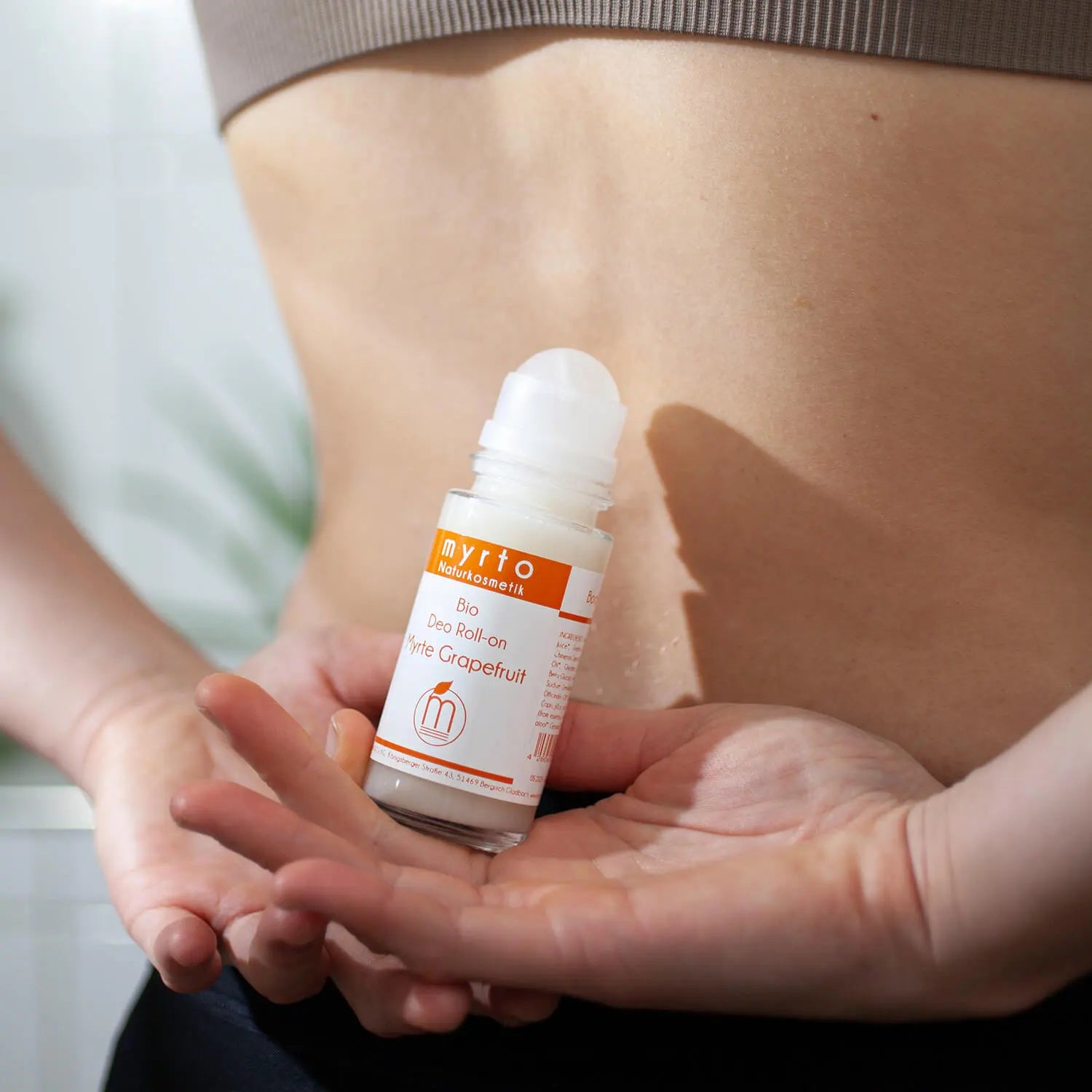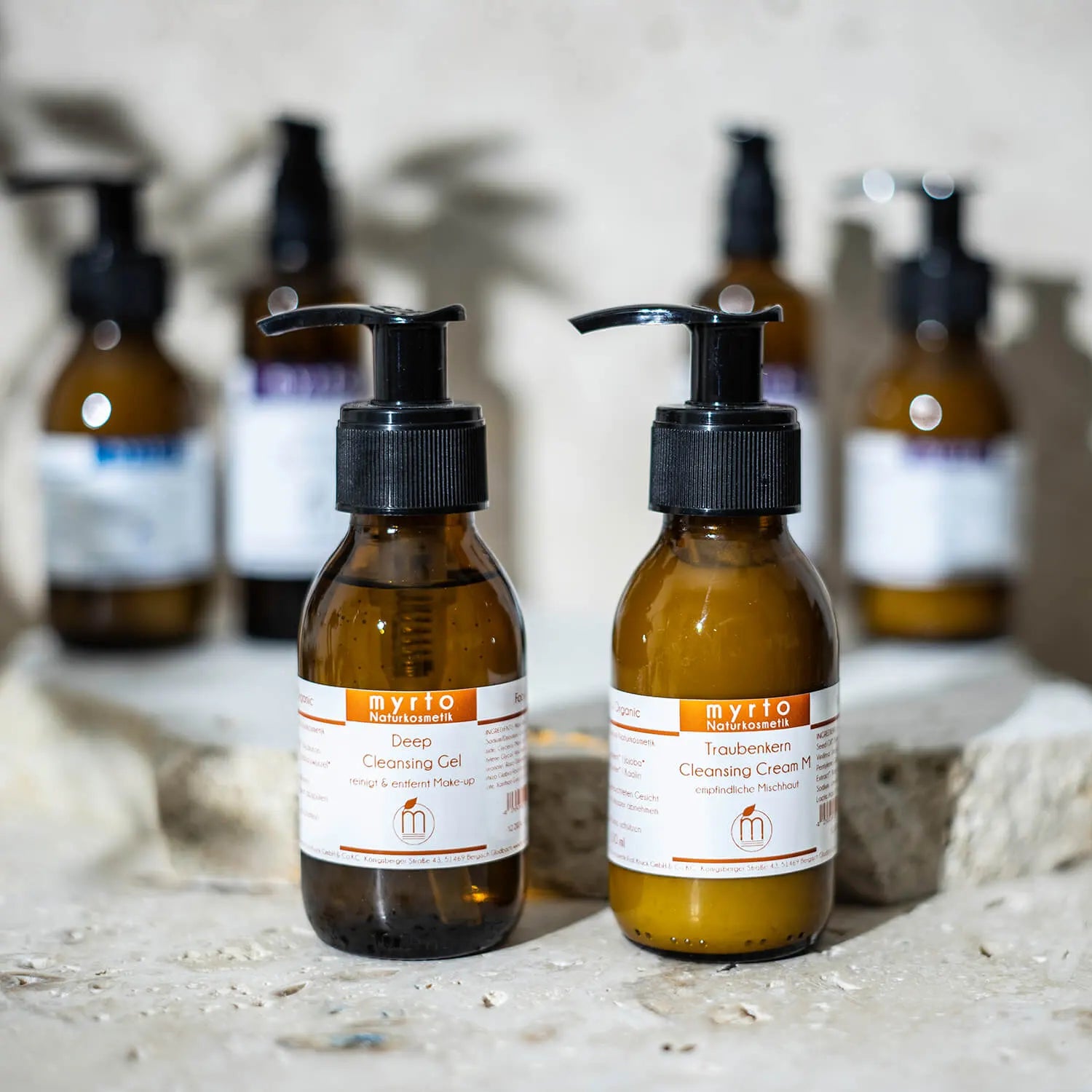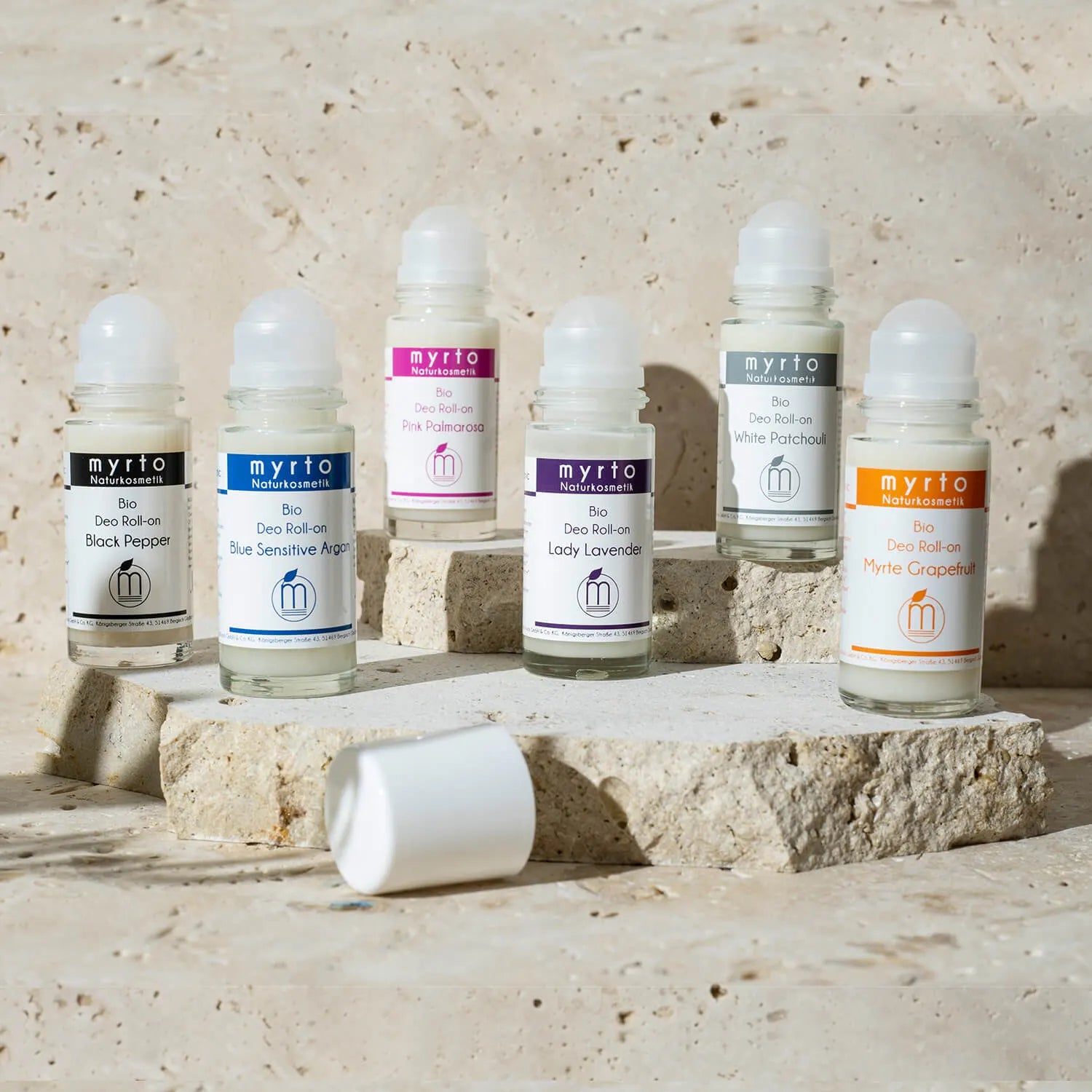
Why deodorants without aluminum?
Sweating - an often underestimated protective mechanism
We often find sweating unpleasant and try to avoid it or cover it up. But this natural process fulfils a crucial function in the body: it regulates our body temperature and helps to eliminate waste products and toxins.
When and why we sweat
It's not just high temperatures and physical exertion that cause sweating - psychological stress can also be a trigger. For example, we sweat when we feel fear or anger. Excessive sweating can also be caused by medical conditions such as hyperhidrosis.
Hyperhidrosis - when sweating becomes a burden
Hyperhidrosis is an excessive production of sweat, which affects around 1-2% of the population. The causes are often difficult to determine, and the disease can have a serious impact on self-esteem and social relationships. In addition to psychological stress, hyperhidrosis can also have physical consequences such as dehydration or skin infections. It can also be an indication of other systemic diseases. The consumption of certain medications or foods, such as alcohol, coffee or spicy foods, can also increase sweat production.
Sweating as the body's natural air conditioning system
Sweat plays an essential role in our metabolism. It protects the body from overheating through evaporative cooling. At the same time, it contributes to detoxification by eliminating harmful substances from the body, including heavy metals such as nickel, lead and arsenic. A 2011 study published in the Archives of Environmental Contamination and Toxicology confirms this detoxifying effect of sweat.
Sweating as part of the body's defense
Our body has 2 to 4 million sweat glands, which are particularly numerous on the forehead, palms, soles of the feet and in the armpits. They are not only responsible for temperature regulation, but are also part of our immune system, as they help to transport harmful substances out of the body.
The most important benefits of sweating at a glance
- elimination of toxins from the body
- elimination of waste products that arise during normal metabolic processes
- elimination of excess micronutrients from the body
- Support for chronic diseases, including cardiovascular, respiratory and joint diseases
How does the smell of sweat arise?
The unpleasant smell is not caused by sweating itself, because sweat is actually odorless. The annoying smell of sweat only arises when the bacteria on our skin break down the sweat into its components. This releases formic and butyric acid, among other things, which are responsible for the pungent and rancid smell.
What should you consider when choosing a suitable deodorant?
To ensure that no unpleasant body odor disturbs your well-being, a reliable deodorant with natural, plant-based active ingredients is part of your morning routine. When choosing a suitable deodorant, you should pay particular attention to avoiding additives that are harmful to the skin, the entire body and also bad for the environment. Unfortunately, such questionable ingredients are still found in many deodorants.
What is the problem with deodorants that contain aluminum?
The vast majority of deodorants contain aluminum salts as an active ingredient. Aluminum is considered to be an effective sweat stopper, but it does have some unpleasant side effects.
-
Aluminum has a neurotoxic effect
Aluminium has a neurotoxic effect and can therefore be described as a nerve poison. Aluminium compounds accumulate in the brain, lungs, kidneys and bones over the long term. They are associated with the development of allergies, Alzheimer's and breast cancer - although this has not yet been proven beyond doubt. Aluminium is also suspected of impairing fertility and damaging pregnancy and healthy bone development. -
Aluminum salts have a high allergy potential
The aluminum salts contained in antiperspirants often cause irritation and itching on sensitive skin. Deodorants containing aluminum can lead to severe allergic reactions. -
The extraction of aluminium is harmful to the environment
Aluminium is the third most common element on earth. It is extracted from bauxite in open-cast mining, which requires a lot of energy. The deposits are mainly located in Australia, China, Brazil, Guinea, Jamaica, India and Cameroon. The extracted aluminium ore is transported to Europe by freighter on long overseas routes, which is not exactly environmentally friendly. -
Aluminum accumulates in the body
Aluminium is a trace element that occurs naturally in root vegetables, lettuce and tea leaves. Only small amounts of it can be excreted from the body. If aluminium is consumed in large quantities, a large proportion of the metal accumulates in the tissue and organs.
In order not to burden your body with unnecessary amounts of aluminum, you should avoid deodorants that contain aluminum and exclude other unnecessary sources of aluminum absorption into your body.
Aluminum beverage cans, whitening toothpastes, aluminum grill trays and other aluminum containers are potentially harmful to health, especially when in contact with acidic or salty foods. There is no need to panic about this, but: it is better to opt for high-quality traditional cookware and a natural diet that is as free from chemical additives and pesticides as possible. The danger of aluminum lies primarily in its long-term effects.
The Federal Institute for Risk Assessment (BfR) has set a maximum weekly limit that is still considered safe. However, this limit is already reached if you use an antiperspirant containing aluminum just once a week.
What other ingredients in deodorants should you also avoid?
-
silicones, paraffins or mineral oils
These petroleum-based ingredients seal the skin, stick it together and have no nourishing effect. Not only are they harmful to the environment during production, they also pollute our waters. -
polyethylene glycols (PEGs)
These synthetic emulsifiers or solubilizers made from mineral oil damage the membrane function of the skin and make it permeable to harmful substances. Possible consequences include skin irritations, allergies, neurodermatitis, reddening of the eyes and mucous membranes, or headaches. PEGs are made from the poisonous gas ethylene oxide and are extremely harmful to our environment. PEGs are mutagenic, teratogenic, and carcinogenic. -
Denatured alcohol (alcohol denat.)
Denaturants in alcohol such as diethyl phthalates do not have to be explicitly declared, but can be hidden behind the misleading ingredient name alcohol denat. These denaturants damage the skin's protective mechanism and are also suspected of acting like hormones. -
Synthetic fragrances
They are intended to mask the smell of sweat, but they lead to increased skin irritation, redness, itching and have an increased allergy potential. Synthetic fragrances are hardly biodegradable. They can still be detected in the environment decades later. -
Triclosan
This antibacterial agent, also used as a disinfectant, causes skin irritation and severe eye irritation. Triclosan damages the skin's natural bacterial flora and, as a so-called "endocrine disruptor," alters the hormonal balance. Triclosan can reduce fertility in women, as shown by a Canadian study from 2015. It bioaccumulates in water and aquatic organisms. Therefore, according to the REACH safety data sheet, triclosan is considered to be very toxic to aquatic organisms with long-term effects. -
parabens
These ingredients, which are often used as preservatives, are very similar to the female hormone estrogen. Parabens have a hormonal effect on the body. They can disrupt hormone balance, limit fertility and encourage the growth of tumors.



